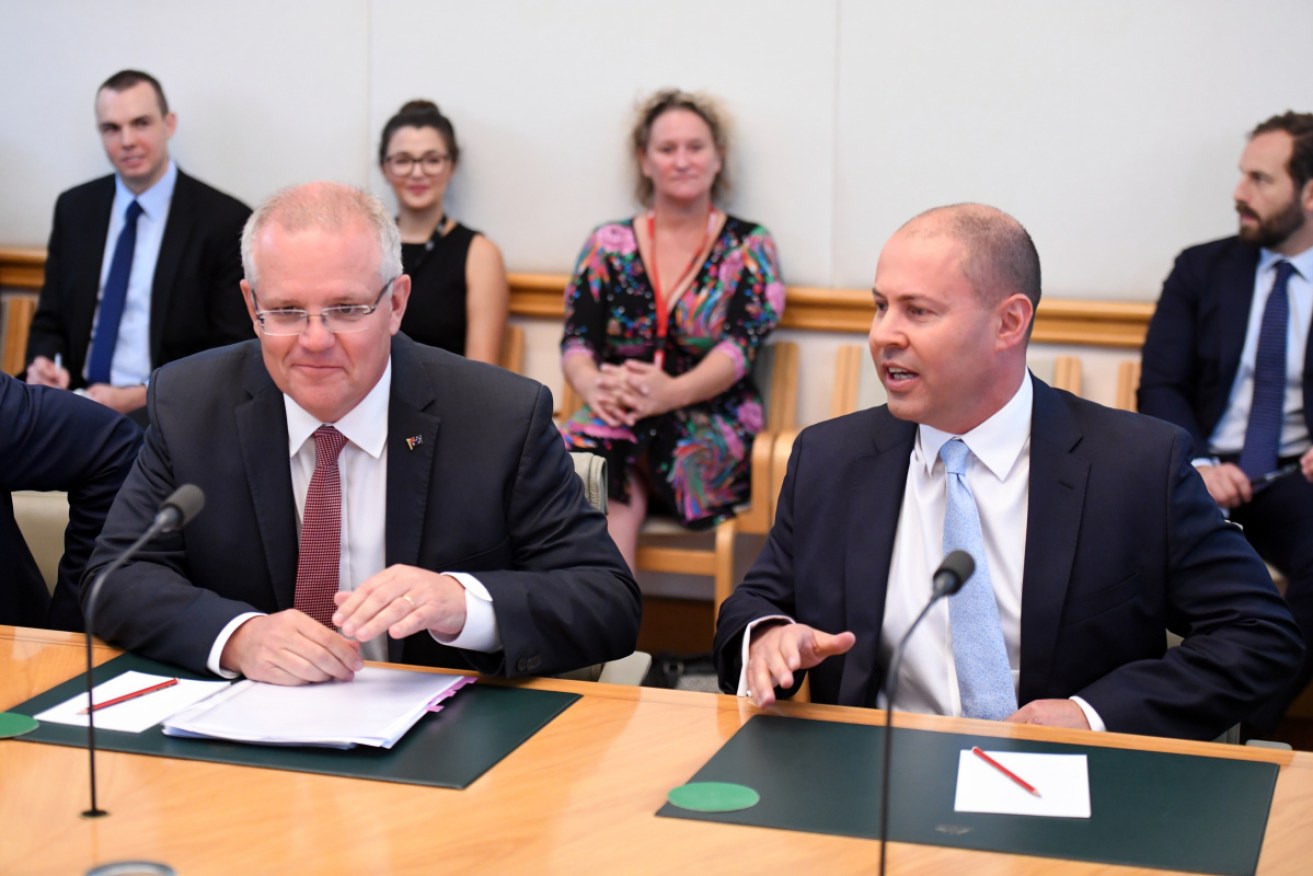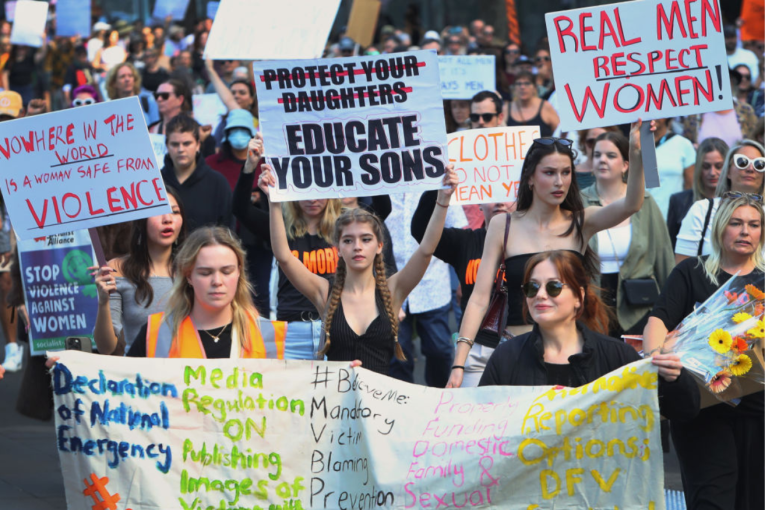Why the business lobby has lost all credibility


The PM and Treasurer can no longer avoid talking about the elephant in the economy. Photo: AAP
Chief executives and chief financial officers don’t get bonuses for increasing their companies’ labour costs – so they try not to.
Chairpersons and boards are not clapped on their collective back by institutional investors for devoting a greater share of revenue to wages – so they don’t.
And the cumulative effect of those simple realities is now unavoidable: Years of real, take-home wages going backwards while corporate profits increased, have meant household consumption is stalling and taking the economy with it.
The national accounts detailed our slowing growth. The retail sales figures – trend growth of just 0.1 per cent in each of December and January – and diving new vehicle sales demonstrate what the economic jargon means to the real world.
Yet such is the myopic nature of corporate focus, business leaders react with horror to the idea that employees need a bigger share of the pie.
The business lobby claims wage increases aren’t possible without productivity trade-offs – but that’s after the productivity increases of recent years going overwhelmingly to higher profits.
Quite simply, the key business lobby groups have little credibility. They claimed reducing penalty rates would increase employment – it didn’t. They claimed cutting company tax would increase wages: It hasn’t and it won’t.
Household consumption accounts for more than half of the economy. According to the ABS, and nicely reported by Greg Jericho with helpful graphs, real household disposable income per capita has fallen back to where it was in 2010.
“Average compensation per employee” grew by only 1.5 per cent in 2018 – an even worse result than the better-publicised ABS wages index.
It’s only population growth that’s providing what little retail sales and GDP growth we have.
The ‘elephant’ in the economy
Prime Minister Scott Morrison can attempt to distract us with a no-news media conference on Christmas Island, and Josh Frydenberg can try to only talk about the unemployment rate, but this week’s bombshells from the ABS have made the elephant in the economy unavoidable.
That elephant should be the centre of attention for next month’s federal budget and May’s election. No wonder “Stunt” Morrison is prepared to fly all the way to Christmas Island for a media conference as there is nothing on the government’s agenda to deal with it.
Worth remembering that in 2000 & 2006 the Howard Govt had consecutive quarters of negative GDP per capita growth & Rudd & Gillard had 5 negative quarters.
Better indicator of living standards is real net national disposable income per capita which is above its 20 yr average.
— Josh Frydenberg (@JoshFrydenberg) March 6, 2019
The philosophical battle lines were neatly drawn by the reaction to a Credit Suisse research paper last month that suggested wages could well rise under a Labor government.
The Sydney Morning Herald headlined its coverage as “Businesses warned of ‘cascading’ wage impacts of a Labor government”.
“Big Australian companies would face a major cost blowout from a likely increase in wages under a Labor government, according to a warning from investment bank Credit Suisse,” the paper reported.
“The private report to investors says that while the bank takes an “agnostic stance” on the merits of ALP policies, it is likely they will lead to a structural increase in the bargaining power of workers, and could lead to a rise in the labour share of the economy’s growth “over and above the ups and downs of the markets”.
On the other hand, the ACTU chief of staff, Ben Davison, was happy to tweet the CS report as proof of the need for just such a change, highlighting labour’s falling share of GDP.
The CS report was before Bill Shorten raised the issue of a “living wage”, saying the federal election should be “a referendum on wages” and that the current minimum wage of $18.93 an hour was based on an outdated understanding of the cost of living.
The Fair Work Commission (FWC) increased the minimum wage by 3.5 per cent last July – against the arguments of the business lobby – and by 3.3 per cent in July 2017. That increase of 6.8 per cent barely registered on the various measures of wages growth.
The conundrum of business needing consumers to have income growth, but not wanting to pay workers more, is a little like the “Paradox of Thrift” – it makes sense for an individual in uncertain times to save and not spend as much, but if everyone does it, uncertain times turn into bad times.
As argued here previously, business is holding a very determined wages strike. Corporate leaders don’t need FWC permission to do it, they just have to hang together to keep a lid on wage rises. In the process, they’re shooting themselves in the foot.
For the Coalition government, the result is a record of economic failure.
Yes, falling real wages have helped employment growth, but the bigger impact was masked for a while by rising asset prices, especially housing.
The mask has fallen off – and the picture is ugly.








